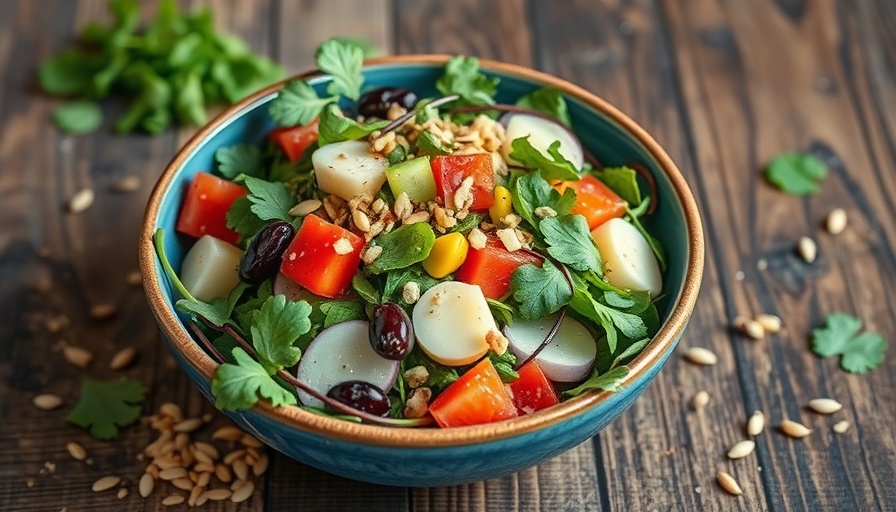
Potential Benefits of an Anti-Inflammatory Diet for Colon Cancer Survivors
Colon cancer remains one of the leading causes of cancer-related deaths worldwide, particularly among those diagnosed with stage 3. However, emerging research presents a hopeful view: an anti-inflammatory diet may significantly enhance survival rates for these patients. A clinical trial presented at the 2025 American Society of Clinical Oncology Annual Meeting highlights how specific dietary choices can influence health outcomes for colon cancer survivors.
How Diet Affects Cancer Outcomes
The recently conducted clinical trial involved over 2,500 participants and examined the link between dietary patterns and survival rates post-treatment. Those who adhered to an anti-inflammatory diet reported longer overall survival rates compared to individuals consuming more pro-inflammatory foods. This suggests a critical connection between diet and cancer recovery.
Dr. Sara Char, a hematologist-oncologist, emphasizes that patients frequently inquire about actions they can take post-treatment to reduce cancer recurrence. This trial strengthens the narrative around dietary intervention, suggesting that an anti-inflammatory approach could be one of several lifestyle strategies that improve health outcomes for colon cancer patients.
Understanding Inflammation's Role in Cancer
Research indicates inflammatory diets can increase colon cancer risk by a staggering 87%. This alarming statistic underscores the importance of dietary choices not just for prevention, but also for recovery. An anti-inflammatory diet, rich in fruits, vegetables, whole grains, and healthy fats, could lower inflammation levels and, in turn, the likelihood of cancer recurrence.
Taking Action: Dietary Choices Matter
Incorporating an anti-inflammatory diet is more than just a nutritional choice; it is a proactive measure for those affected by colon cancer. Patients and caregivers must prioritize healthy living tips, including the consumption of nutrient-dense foods that may enhance treatment outcomes.
With the evidence suggesting significant benefits, it is essential for survivors and their families to consider these dietary interventions. Maintaining a balanced, health-focused lifestyle can be a critical component of cancer care and chronic illness management.
Where to Go From Here
If you are a colon cancer survivor or a caregiver supporting a loved one through recovery, now is the time to explore how an anti-inflammatory diet can make a difference. Consult with healthcare professionals and nutritionists to develop a personalized dietary plan that incorporates these insights. A healthy diet not only supports recovery but may enhance your overall quality of life.
If you have questions about your health journey, call us today at 984-238-6164 or email us at tom@mywellnesstrain.com.
 Add Row
Add Row  Add
Add 




Write A Comment